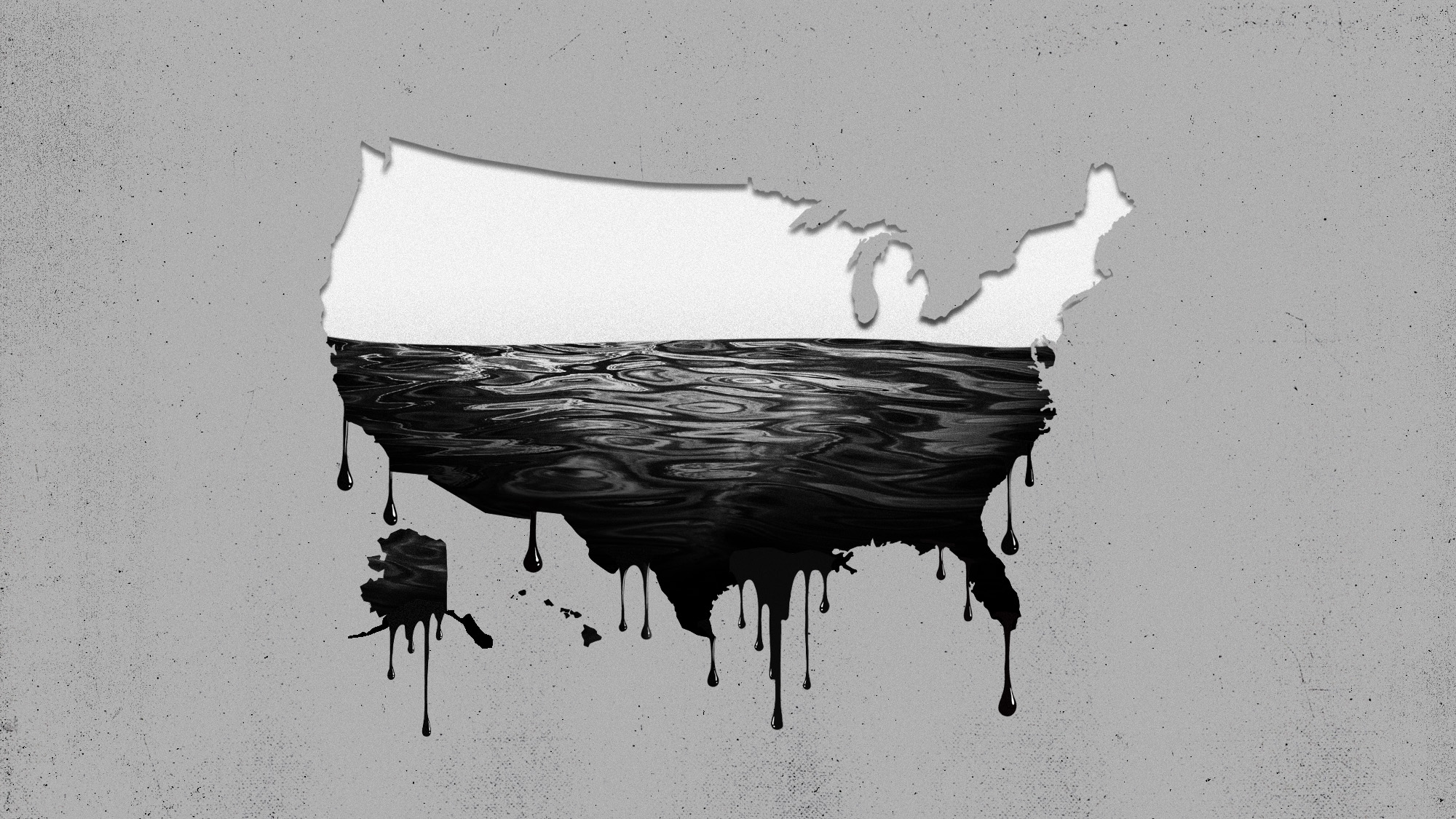Big Oil doesn't need to 'drill, baby, drill'
Trump wants to expand production. Oil companies already have record output.


A free daily email with the biggest news stories of the day – and the best features from TheWeek.com
You are now subscribed
Your newsletter sign-up was successful
Donald Trump wants America's energy companies to produce more oil and "unleash" a new era of energy independence. "Drill, baby, drill" was a perpetual refrain on the campaign trail. There's just one obstacle now that he's been elected: The energy companies themselves.
"Oil and gas companies probably have other ideas," said The Guardian. The United States is already the world's largest producer of oil and gas, and has been for the last six years — since the last Trump administration. Big companies right now are profitably focusing on low-cost, high-production wells and reluctant to spend money drilling new wells while crude oil prices "stay flat," said the Guardian. "Nobody's got crazy plans to be drilling at accelerated rates," said Peter McNally, an analyst at Third Bridge.
Among the notable skeptics is ExxonMobil CEO Darren Woods. "I don't know that there's an opportunity to unleash a lot of production in the near term," he said to Semafor. Most companies are already "optimizing their production." Woods naturally opposes climate policies designed to produce a "rapid phaseout of oil and gas consumption." But he doesn't see a need to expand drilling, either. "I don't think today that production in the U.S. is constrained."
The Week
Escape your echo chamber. Get the facts behind the news, plus analysis from multiple perspectives.

Sign up for The Week's Free Newsletters
From our morning news briefing to a weekly Good News Newsletter, get the best of The Week delivered directly to your inbox.
From our morning news briefing to a weekly Good News Newsletter, get the best of The Week delivered directly to your inbox.
'Market forces remain more powerful'
"Drill, baby, drill" is a "political slogan, not a business plan," David Blackmon said at Forbes. Oil companies take action in response to "both public policies and market realities" and while the Trump administration will certainly be "more pro-oil and gas" than its predecessors, the market isn't giving the green light to expanded oil production. Big oil patches like the Permian Basin are in the "mature, development phase of their life's cycles" in which producers focus on maximizing the efficiency of existing wells instead of looking for new places to drill. Public policy is important, Blackmon said, but "market forces remain more powerful."
"Trump's win is neither an oil gusher nor a green crusher," Liam Denning said at Bloomberg. Trump will reduce regulations and make it easier for oil companies to drill on federal lands. But there are "far bigger forces shaping the outlook for prices." Among them are the green technologies unleashed by President Joe Biden's Inflation Reduction Act, which spread climate-friendly tech production to red states. "Self-interest" among Republican members of Congress might prevent a repeal, Denning said. Presidential policies are only one part of the energy equation. "The raft of details matter."
'The most oil produced by any country ever'
Trump has selected oil company executive Chris Wright as his secretary of energy, CNN said. Wright is one of the "industry's most vocal supporters of fracking oil and natural gas" and says the world is not transitioning away from fossil fuels. But the United States already produces more than 13 million tons of oil a day, which is the "most oil produced by any country ever." Market conditions will continue to rule, said former energy official Bob McNally. "It's not like President Biden or any president has a dial in the Oval Office to increase production."
A free daily email with the biggest news stories of the day – and the best features from TheWeek.com
Joel Mathis is a writer with 30 years of newspaper and online journalism experience. His work also regularly appears in National Geographic and The Kansas City Star. His awards include best online commentary at the Online News Association and (twice) at the City and Regional Magazine Association.
-
 Switzerland could vote to cap its population
Switzerland could vote to cap its populationUnder the Radar Swiss People’s Party proposes referendum on radical anti-immigration measure to limit residents to 10 million
-
 Political cartoons for February 15
Political cartoons for February 15Cartoons Sunday's political cartoons include political ventriloquism, Europe in the middle, and more
-
 The broken water companies failing England and Wales
The broken water companies failing England and WalesExplainer With rising bills, deteriorating river health and a lack of investment, regulators face an uphill battle to stabilise the industry
-
 Currencies: Why Trump wants a weak dollar
Currencies: Why Trump wants a weak dollarFeature The dollar has fallen 12% since Trump took office
-
 Companies are increasingly AI washing
Companies are increasingly AI washingThe explainer Imaginary technology is taking jobs
-
 TikTok: New owners, same risks
TikTok: New owners, same risksFeature What are Larry Ellison’s plans for TikTok US?
-
 Trump wants a weaker dollar, but economists aren’t so sure
Trump wants a weaker dollar, but economists aren’t so sureTalking Points A weaker dollar can make imports more expensive but also boost gold
-
 Leadership: A conspicuous silence from CEOs
Leadership: A conspicuous silence from CEOsFeature CEOs were more vocal during Trump’s first term
-
 The end for central bank independence?
The end for central bank independence?The Explainer Trump’s war on the US Federal Reserve comes at a moment of global weakening in central bank authority
-
 Can Trump make single-family homes affordable by banning big investors?
Can Trump make single-family homes affordable by banning big investors?Talking Points Wall Street takes the blame
-
 Why is pizza in decline?
Why is pizza in decline?In the Spotlight The humble pie is getting humbler
